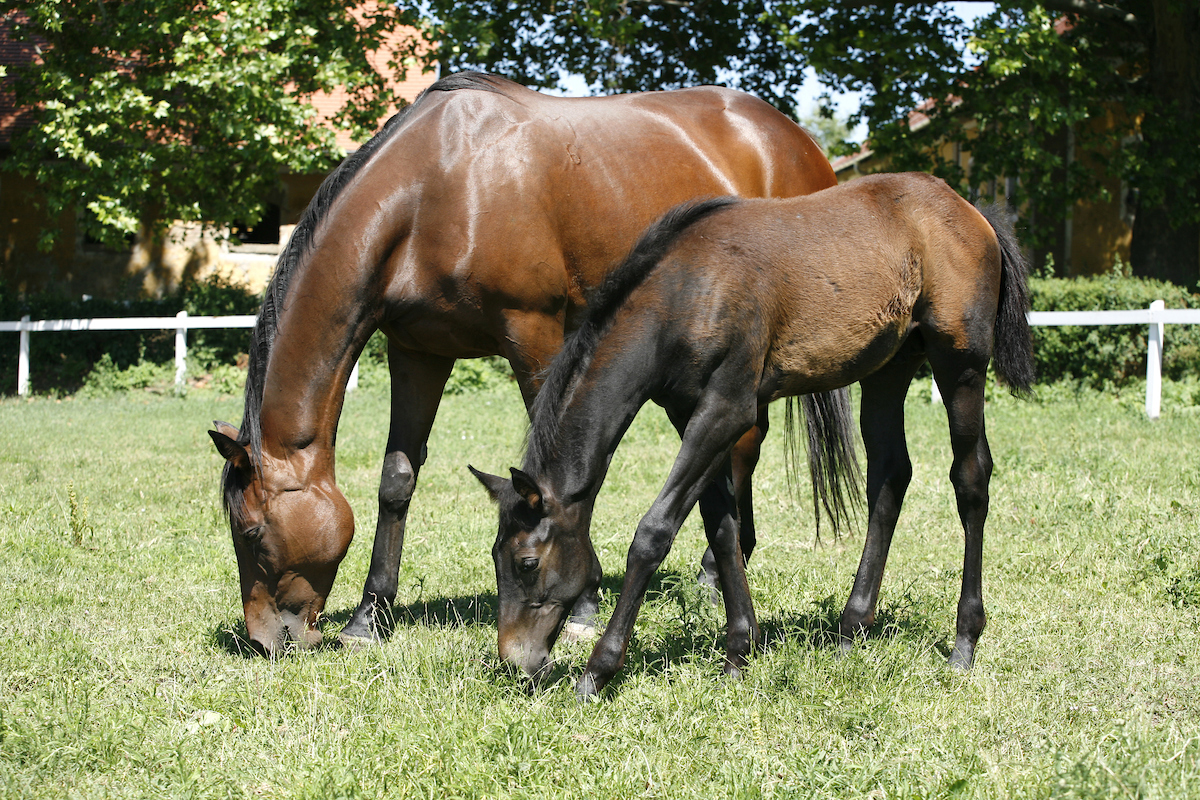Young horses are the next generation of potential superstars, whether that be Olympic prospect or a once in a lifetime pony that will become the pride and joy of the family. Ensuring they grow correctly is a worthwhile investment to help support their potential come to fruition.
Steady growth requires the correct nutrient balance within the diet; something that in most cases cannot be achieved from feeding forage alone. Unlike mature horses, a young horse’s feed intake is not purely devoted to maintenance. The level of vitamins, minerals, and proteins needed to support growth, relative to body size, far exceed that of an already mature horse. It is for this reason specific feeds are carefully formulated to support the differing needs of breeding horses and youngstock.
The health and wellbeing of your young horse starts before the dam even conceives the pregnancy. Providing the mare with an appropriately balanced diet, such as Stud Muesli or Suregrow, not only helps to support her overall health but also with providing the essential nutrients needed for the growth of her foal, in utero, through lactation, and all the way to the day of weaning.
Weaning is one of the first major changing points in a young horse’s life. Typically, there is a decline in growth rates which is then followed by a period of rapid growth, making the diet ever more important to help avoid risk of developmental orthopaedic disorders. Providing Creep Pellets and good quality forage should hold the weanling in good stead with regards to daily nutrient requirements to support steady weight gain, as well as providing ideal protein levels and prebiotics to support digestive health.
As the young horse continues to mature, feeds such as Youngstock Cubes, Suregrow and Mare & Youngstock Concentrate are options with recommended levels of vitamins and minerals, such as calcium and phosphorus, and quality protein, to support maturing tissue and skeletal development.
Although growth rates have slowed, horses at 3 years old are still juvenile in their skeletal development with some growth plates, such as the shoulder and stifles, yet to completely close. Although they may look like fully grown adults it is still important to meet nutritional requirements especially if starting training and work. With the addition of exercise and training a young horses nutritional needs change again. This time the consideration of calories for energy output, the added forces from ground work on the long bones, and increases in other nutrients like electrolytes needed as a result of increased exercise need to be considered.
Finally, horses all grow at different rates because of factors such as genetics and breed so not all flowers will bloom at the exact same time! Some youngsters will need slightly more support for longer than others so feeding rates, product choices, and timings of graduation to an adult feed, will differ for each individual.




